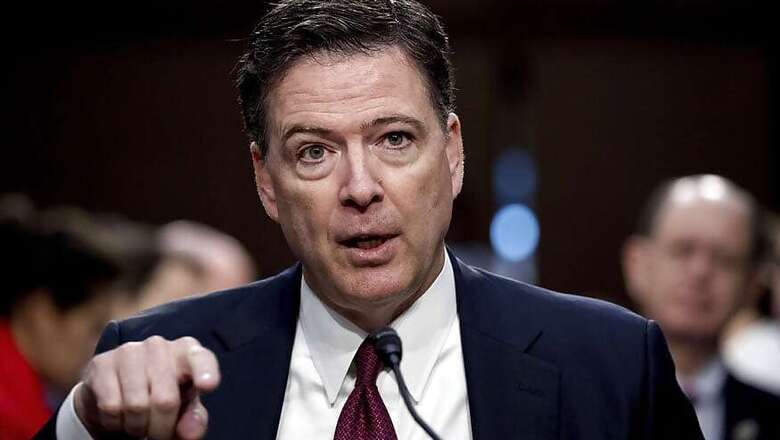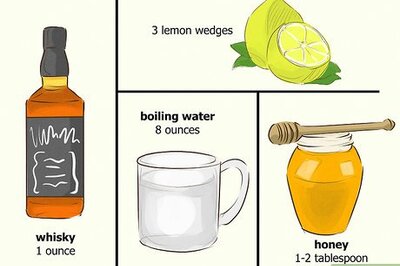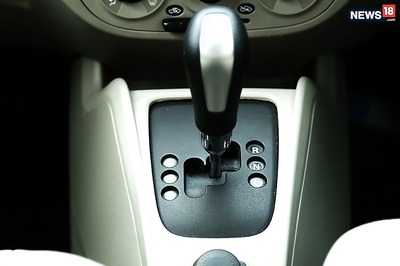
views
Former FBI director James Comey was "insubordinate" in his handling of the Hillary Clinton email probe, an official watchdog found Thursday, handing new ammunition to President Donald Trump in his feud with US investigators.
But the Justice Department's long-awaited report found no evidence of political bias in the ultimate decision not to prosecute Clinton for mishandling official email, in a probe that shook the election's dynamics and may have influenced the Democrat's defeat.
Comey and the FBI were heavily faulted, with Comey, a strong critic of Trump, seen as repeatedly skirting agency rules and procedures, and two agents under him revealing in personal messages a "willingness to take official action to impact" Trump's election chances.
"Although we acknowledge that Comey faced a difficult situation with unattractive choices, in proceeding as he did, we concluded that Comey made a serious error of judgment," the internal report said of one key moment in the Clinton probe.
Even so, the Justice Department's Inspector General found no fault in the decision announced by Comey on July 5, 2016 that Clinton should not face prosecution for placing classified materials on her personal email server while she was secretary of state.
"We found no evidence that the conclusions by the prosecutors were affected by bias or other improper considerations," it said.
"Rather, we determined that they were based on the prosecutors' assessment of the facts, the law, and past department practice."
According to the report, Comey used a private email account for FBI business -- the irony of which was not lost on Clinton.
"But my emails," she wrote on Twitter, responding to a tweet about the issue.
'Lock her up'
The report reviewed one of the most controversial chapters of the 2016 election battle between the Republican Trump and his Democratic rival Clinton.
In the middle of the campaign, Comey announced Clinton would not be prosecuted -- an announcement that would have normally been handled by the attorney general and drew heavy criticism.
Then, 12 days before the November 8 election, Comey reopened the investigation, after new evidence surfaced. And he closed it again after the evidence proved to be inconsequential.
Trump has repeatedly said a biased Justice Department and FBI let Clinton off easily, and he made "lock her up" a chant in his election rallies.
Within months of becoming president, Trump fired Comey in May 2017.
Since then he has sought to tarnish Comey's reputation, in the expectation Comey could be a witness against him in the obstruction of justice probe by Russia election meddling special counsel Robert Mueller.
Trump says the Russia probe is driven by investigators from the Justice Department and FBI who harbor deep biases against him.
His lawyer Rudy Giuliani has made clear that attacking the integrity of Comey and Justice will be part of his defense if Trump is confronted by any effort to impeach him arising from the Mueller investigation.
Lingering bias suspicions
In a column Comey published in the New York Times just after the report's release, Comey said he did not agree with all of the conclusions but praised its "professionalism".
"The inspector general's team went through the FBI's work with a microscope and found no evidence that bias or improper motivation affected the investigation," he said.
"The report also resoundingly demonstrates that there was no prosecutable case against Mrs Clinton, as we had concluded," Comey wrote, although he conceded this "probably will not stop some from continuing to claim the opposite is true."
Comey aside, the report left lingering suspicions of bias on the part of FBI investigators, citing text messages between two, Peter Strzok and Lisa Page, who worked on both the Clinton and Russia investigations and who were having an affair during that period.
During the 2016 campaign, Page asked Strzok: "(Trump's) not ever going to become president, right? Right?!"
"No. No he won't. We'll stop it," Strzok replied.
The report said that there was no evidence that either ever acted on their sentiments, but assailed both for "extremely poor judgment and a gross lack of professionalism."
White House press secretary Sarah Sanders seized upon that aspect of the report, saying it "reaffirms the president's suspicions about Comey's conduct and the political bias among some of the members of the FBI."
Current FBI Director Christopher Wray accepted the report's findings and pledged a round of reeducation for top management and the bureau's rank and file on being objective and on how to avoid the mistakes maken by Comey and others.
The inspector general's oversight "makes the FBI stronger and makes the public more safe," he said.
"We need to hold ourselves accountable for the choices we make."



















Comments
0 comment